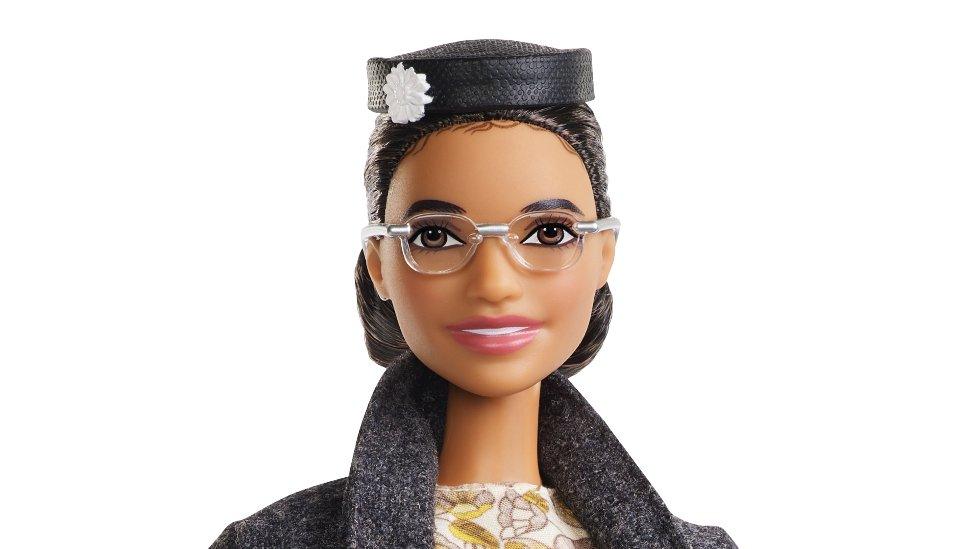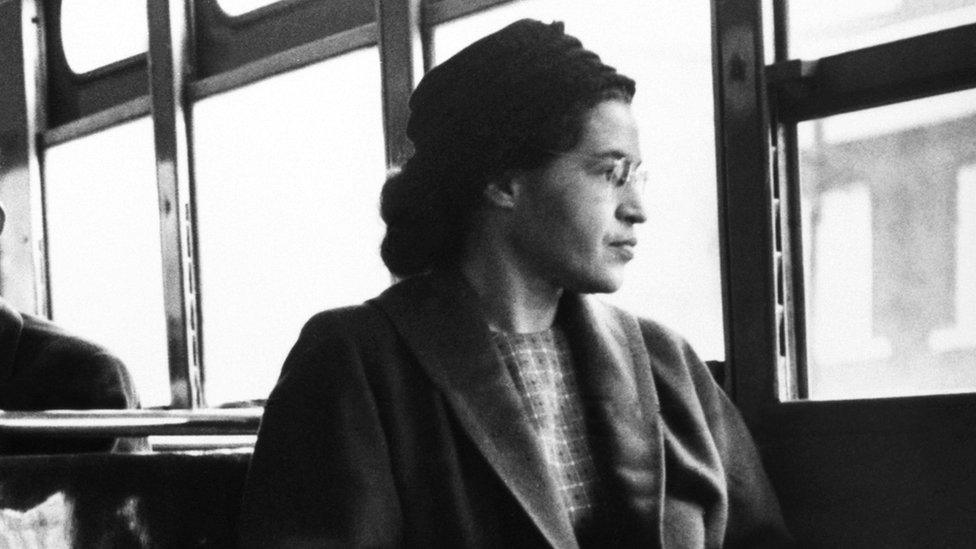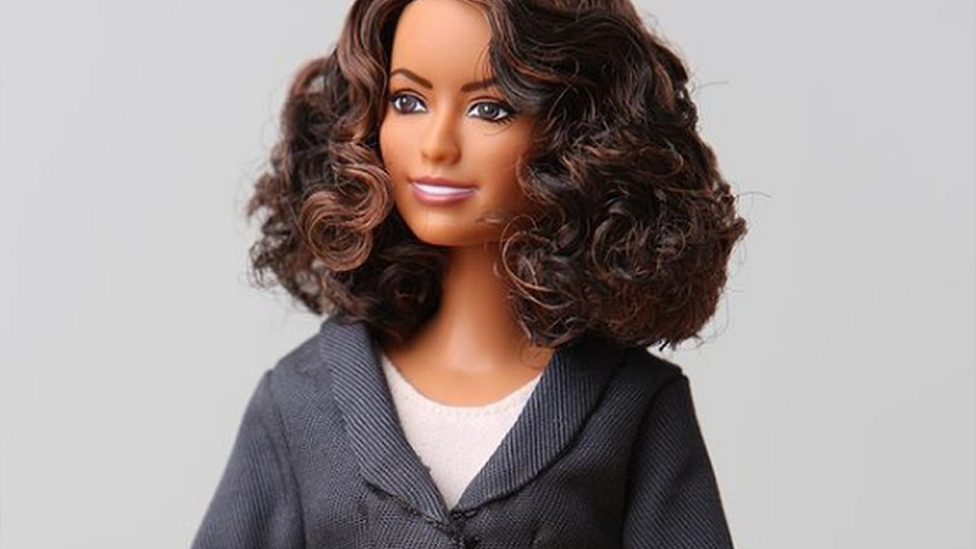Rosa Parks: Mattel releases doll in honour of activist
- Published

The doll will come with educational material about her life
Mattel has released a Barbie doll of civil rights pioneer Rosa Parks.
The company revealed Ms Parks is the latest addition to the Barbie's Inspiring Women's series. It comes with educational material about her life.
Ms Parks' refusal to give up her seat to a white man on a bus in 1955 prompted a mass black boycott of buses, organised by Martin Luther King Jr.
She was awarded the Congressional Gold Medal in 1999, one of the highest civilian awards in the USA.
The Rosa Parks doll wears 1950s style clothes.
Mattel has also revealed a Sally Ride doll, to honour the first American woman in space. The announcement came on 26 August, also Women's Equality Day.
Despite positive reaction to the dolls, some people on social media have said that the dolls give an unrealistic representation of women's bodies.
Why are they doing this now?
There have been calls for Barbie to create dolls that represent the world girls see today.
Earlier this year Mattel introduced a wheelchair user and a Barbie with a prosthetic leg. However it was criticised for reinforcing that all disabled women use a mobility aid , externalsuch as a wheelchair.
Last year, a black Barbie Doll's hairstyle was criticised for not accurately representing how black women would style their hair in real life.
In 2016, Mattel unveiled curvy, tall and petite dolls in a bid to move away from the doll's signature shape. The new line also included wider range of skin tones and hairstyles.
A study in 2006 in Developmental Psychology found that girls who saw images of Barbie dolls before filling out a questionnaire reported a worse body image than those who didn't see the dolls., external

'An issue toymakers have been aware of for some time'
Nabihah Parkar, Radio 1 Newsbeat
The new additions to their range mark the latest effort by an industry giant to diversify. But this is an issue smaller toymakers have been aware of for some time.
Sharon McBean created Nia Ballerina, a black ballerina character, for her daughter in 2016 when she couldn't find a black ballerina doll anywhere in the world.
She said that it's "frustrating and annoying" when bigger companies jump on the "bandwagon" to fill a gap in the market.
"I'm not doing this to make money, more my daughter needs to see herself represented," she said.
"Mattel don't need the publicity, it's people like myself and other small businesses that need it. And we're doing it because of the passion."
Salam Sisters is a brand of dolls aiming to represent a positive Muslim identity. Co-founder Peter Gould hopes the new Barbie dolls will "reflect a change".
"An iconic brand like Barbie that's inter-generational, hopefully it sends a message to parents.
"Other bigger brands around like Disney, they're producing content to be more inclusive. I feel like it would've been nice if they were doing that 20 years ago."

Who was Rosa Parks?
Rosa Parks was arrested in Montgomery, Alabama on 1 December 1955 for refusing to give up her seat for white passengers.
At the time, black passengers were required to pay at the front of the bus, leave it, walk to the back of the vehicle and then re-enter.
If the bus started filling up, they had to give up their seats for white customers.
She was arrested and fined $14 (£11.43) for refusing to give up her seat.

Ms Parks refused to give up her seat on a bus to a white man
Her arrest triggered a 381-day boycott of the bus system organised by Martin Luther King Jr. The protest led to the desegregation of the transport system.
Speaking in 1992, Ms Parks said: "The real reason of my not standing up was I felt that I had a right to be treated as any other passenger. We had endured that kind of treatment for too long."
She moved to Detroit with her husband where she worked as an aide in a Democratic Congressman's office. Upon her retirement, Ms Parks devoted her time to an institute she and her husband founded, aimed at developing leadership among young people.
Ms Parks died in 2005 aged 92.
Why has Rosa Parks’ house travelled 8,000 miles?
- Published11 July 2019

- Published7 March 2019
